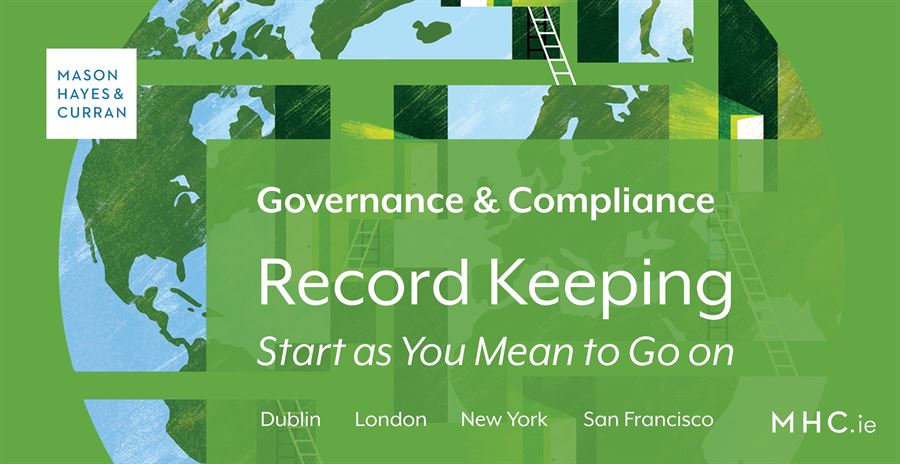
“Run your company like you are planning to sell it” was a piece of advice given to a room full of companies attending a talk being delivered by an entrepreneur that had successfully navigated the pathway from establishment to development and scaling and eventually to a lucrative exit. He was calling it as it was: you are pursuing your respective endeavours to make money so do everything that you can to maximise that return.
Be accurate, be timely
Irish companies are required by law to maintain a number of books and registers. These include proper accounting records that correctly record and explain the transactions of the company and that enable its assets, liabilities, financial position and profit or loss to be determined with reasonable accuracy at any time. The law also requires that accounting records are kept on a continuous and consistent basis and that entries made in them are made in a timely manner.
Registers and minutes
.jpg) A company must keep registers of its members, directors and secretary and disclosable interests, and it must also keep copies of instruments creating charges and copies of directors’ service contracts. The Companies Act 2014 further requires companies to keep minutes of shareholder and director meetings.
A company must keep registers of its members, directors and secretary and disclosable interests, and it must also keep copies of instruments creating charges and copies of directors’ service contracts. The Companies Act 2014 further requires companies to keep minutes of shareholder and director meetings.
- For minutes of shareholder meetings, which must record the resolutions of shareholders passed in writing, the minimum detail to be recorded is a summary of the proceedings of the meeting and the terms of the resolutions passed.
- For board meetings, which include meetings of committees of the board and resolutions of both passed in writing, the minimum detail to be recorded is the appointments of officers made by the directors, the names of the directors present, a summary of the proceedings and details of all resolutions passed. In the case of both meetings of the shareholders and directors of a company, the minutes should be prepared “as soon as may be” after the meeting has been held.
Certain of the registers and documents required to be kept by a company can be inspected by the shareholders of that company. These are registers of its members, directors and secretary and disclosable interests, and the instruments creating charges and directors’ service contracts. Members of the public are entitled to inspect a company’s registers of members, directors and secretary and disclosable interests.
Available for inspection
A company is permitted to keep any of these registers and documents electronically, except for minutes of meetings of shareholders’. If storing these electronically, a company is obligated to put adequate measures in place to guard against and detect falsification. Registers and documents kept electronically must also be capable of being easily reproduced in legible form at a place in Ireland.
When it comes to the day-to-day running of an Irish company, it would be uncommon for a request to be made by a shareholder or a member of the public to inspect the registers and documents that the law permits them to inspect. On the other hand, if a company was the subject of an interested investor, lender or acquirer, it would be most usual for them to require production of all these registers and documents for due diligence purposes, subject to, where the need permits, obligations of confidentiality to be agreed and documented.
When there is a gap in record keeping, which is likely to occur when ‘the paperwork’ has been neglected, the prospective investor, lender or acquirer will be unable to satisfy themselves that the company has complied with its statutory obligations . In addition, the company and its owners may be unable to quantify the cost to rectify any neglect in this regard under time pressure and the scrutiny of an impatient investor, funder or acquirer.
Conclusion
Record keeping is one of the things that you, as a business owner, can control. Record keeping can be ‘routine’ and inexpensive when the time is taken at the outset to get the processes, procedures and resources right.
Even if you don’t have plans to sell your company, run it like you are planning to sell it. It’s better to get the record keeping right on your own time and on your own terms, rather than it being one of the elements that undermines or adds unnecessary cost to that financing or exit when it does come.
For more information on these matters and others, contact a member of our Corporate Governance & Compliance team.
The content of this article is provided for information purposes only and does not constitute legal or other advice.





